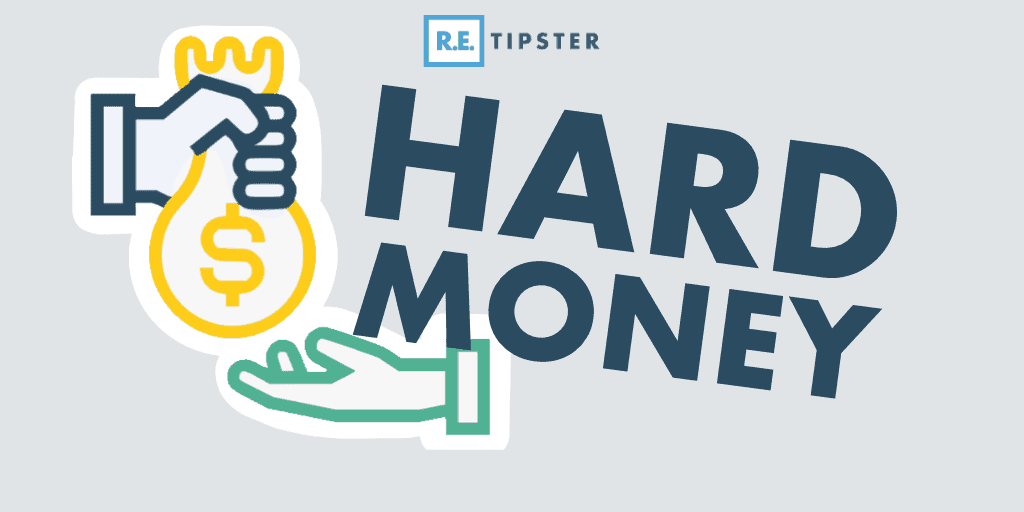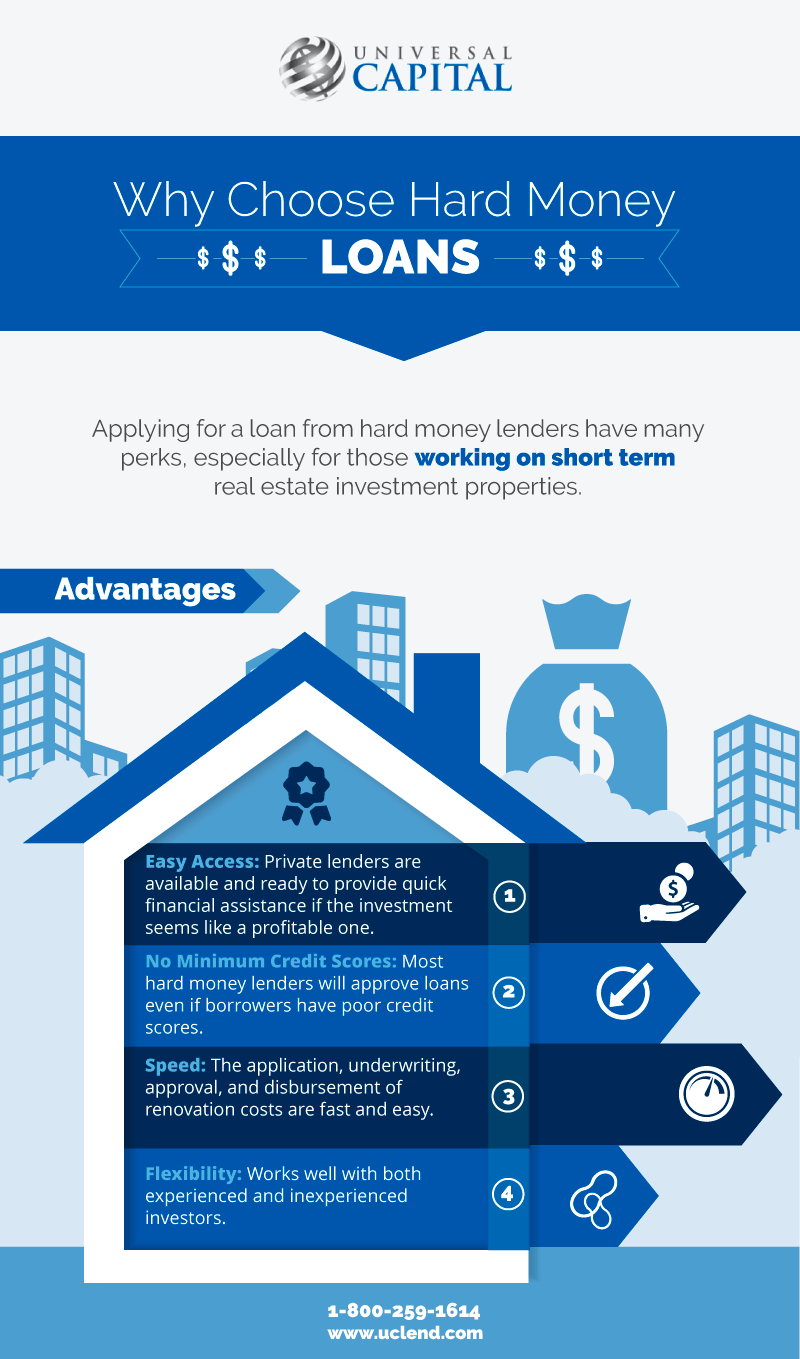Why Property Investors Select Hard Money Loans In Georgia for Quick Closings
Exactly How a Hard Cash Finance Works: a Comprehensive Guide for Customers
Hard cash loans present an unique financing alternative that leverages real estate as collateral, appealing especially to those that need quick accessibility to capital. Comprehending the mechanics of these car loans is crucial for debtors, as the process differs significantly from standard borrowing methods.
Comprehending Tough Cash Car Loans
Comprehending difficult money finances is necessary for both real estate investors and consumers seeking fast capital. Hard cash lendings are protected by actual estate, with the building itself serving as collateral.
The terms of tough cash loans are typically temporary, ranging from a couple of months to a couple of years, and they commonly come with greater passion prices compared to conventional car loans. This costs mirrors the higher threat loan providers assume and the expedited nature of the finance process. Capitalists frequently utilize difficult money loans for fix-and-flip tasks, permitting them to acquire, restore, and offer properties rapidly for profit.
Moreover, the underwriting requirements for difficult money fundings are normally less rigid, promoting faster authorizations. Nevertheless, consumers must remain cautious about the payment terms and possible penalties for default, as these loans can lead to considerable economic consequences if not handled appropriately. Recognizing these dynamics is important for notified decision-making in realty financing.
The Application Refine
Looking for a hard money financing involves a streamlined procedure that can be completed fairly quickly contrasted to conventional borrowing techniques. The first action is to recognize a trustworthy difficult cash lender who specializes in the kind of property financing you need. Customers commonly start by submitting a financing application, which includes necessary information regarding the residential property, the desired usage of the funds, and their financial standing.
When submitted, the lending institution will certainly perform a property assessment to determine its market price and analyze the threat included. Unlike traditional lendings that greatly consider debt ratings, tough money lenders mainly focus on the collateral value. This suggests that buildings with solid equity can protect financing even if the customer's credit report is much less than excellent.
After the appraisal, the lender will certainly present a loan proposal, describing the terms, rates of interest, and any added charges. Upon acceptance, borrowers will require to provide necessary paperwork, such as proof of identity and possession of the building. The last step is the closing process, where the funds are disbursed, allowing borrowers to use the resources for their designated objective.
Advantages of Difficult Money Financings

Furthermore, hard money loans are mainly based on the worth of the collateral as opposed to the debtor's creditworthiness. This can be specifically advantageous for those with less-than-perfect credit report or for capitalists wanting to take advantage of properties with equity. The versatile underwriting standards allow consumers to accessibility funds that may otherwise be inaccessible through standard lending channels.
Furthermore, hard money lending institutions usually have an even more structured approval process, which can be beneficial genuine estate financiers who require fast accessibility to capital for building purchases or renovations. This dexterity can cause an one-upmanship in busy markets.
Lastly, difficult cash fundings can give a beneficial tool for borrowers looking for to finance one-of-a-kind tasks that do not fit typical borrowing criteria, therefore expanding their investment potential.
Potential Dangers and Drawbacks
While difficult cash financings can be an attractive choice for some borrowers, they are not without their potential threats and drawbacks. One of the most considerable concerns is the high rate of interest connected with these financings, which can often go beyond those of traditional funding. Hard Money Loans In Georgia. This elevated cost can result in substantial financial strain, particularly if the debtor faces unpredicted obstacles in settling the Related Site finance
Additionally, tough cash fundings normally include much shorter repayment terms, frequently varying from one to 3 years. This limited timeframe can produce stress for consumers to market or refinance their property promptly, which may not always straighten with market conditions. Furthermore, the dependence on the home's value instead of the consumer's creditworthiness means that variations in the property market can dramatically influence the lending's stability.

Another significant risk is the absence of regulatory oversight that governs difficult money borrowing. This can lead to predative financing techniques or undesirable terms that are not clear to the consumer. Overall, while hard cash financings can supply fast accessibility to funds, it is essential for customers to thoroughly assess these threats and consider their long-lasting economic ramifications prior to proceeding.
Contrasting Tough Money to Typical Fundings
When reviewing funding choices, it is vital to comprehend the essential differences between difficult cash car loans and conventional loans. Difficult cash loans are usually secured by real estate and are moneyed by personal capitalists or firms.
Rates of interest on hard money fundings are typically higher, showing the increased danger for lending institutions - Hard Money Loans In Georgia. They provide much faster authorization procedures and less stringent certification requirements, making them appealing for those needing immediate funding, such as genuine estate capitalists. Typical loans, while slower to process, visit this web-site often featured reduced rates of interest and longer payment terms, making them better for customers seeking steady, long-term financing
Inevitably, the selection between tough money and conventional loans depends on private circumstances, including necessity, debt condition, and the particular financial goals of the consumer. Comprehending these differences can help assist customers in picking the most suitable funding option for their demands.

Conclusion
In recap, hard cash lendings give a viable funding alternative for consumers needing quick access to funds, specifically when conventional borrowing methods are not available. The structured application process, combined with the capacity to take advantage of genuine estate as collateral, supplies unique advantages. It is vital to take into consideration the potential dangers and drawbacks linked with greater rate of interest prices and charges. Ultimately, careful evaluation of this funding approach in comparison to typical loans is crucial for notified decision-making.
Recognizing difficult money car loans is crucial for both genuine estate capitalists and consumers seeking fast capital.The terms of hard cash finances are generally temporary, varying from a few months to a few years, and they frequently come with higher rate of interest prices contrasted to traditional finances. Unlike traditional loans that may take weeks or months to process, difficult cash loans can frequently be safeguarded in a matter of days, permitting consumers to exploit on time-sensitive investment opportunities.
When assessing funding options, it is important to comprehend the key distinctions in between tough money car loans and typical lendings.In recap, hard money car loans give a sensible financing alternative for debtors calling view it for quick access to funds, especially when typical borrowing avenues are not available.